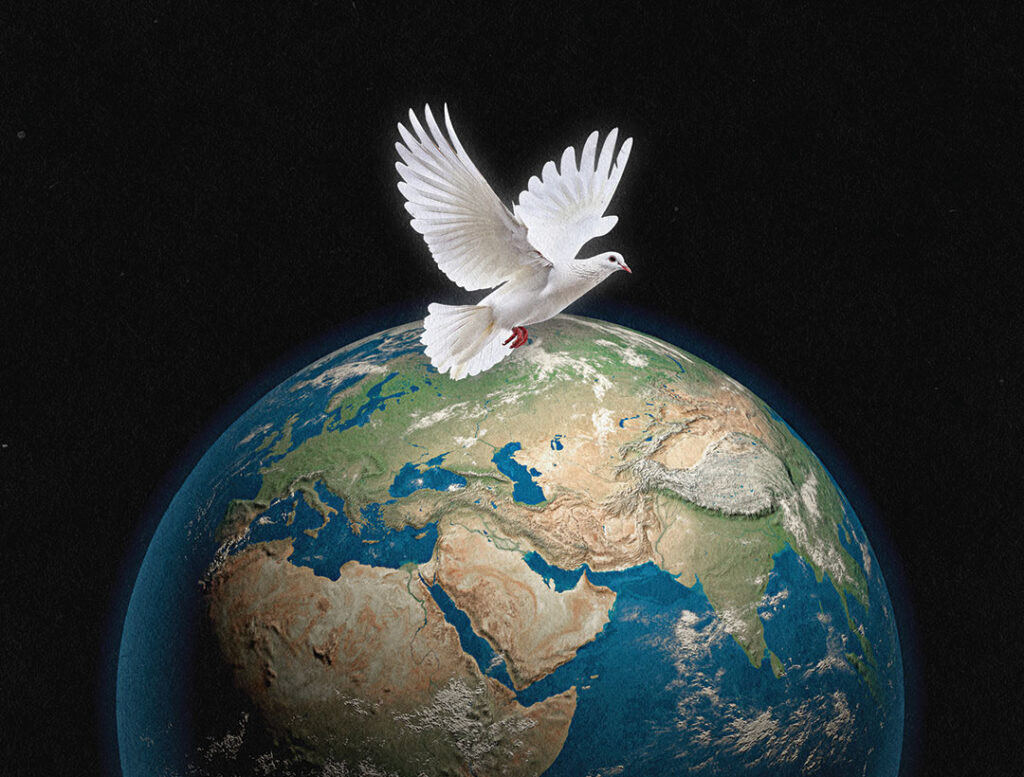A gathering of military, diplomatic and academic experts — including top officers from U.S. Central Command — concluded that Arab nations of the Middle East are the critical piece in establishing peace and stability.
“Untying the Gordian Knot: Envisioning Peace in the Middle East” was the title of the conference at the University of South Florida in September 2024. The university’s Global National Security Institute hosted the event in Tampa, Florida, with U.S. Central Command.
“We’re in a dangerous time in the Middle East,” said retired Gen. Frank McKenzie, former commander of U.S. Central Command. “But we’ve been in bad places before and good things have happened from that.”
Turmoil in the region intensified with the prolongation of the Gaza conflict. As a would-be imperial power, Iran has been the biggest force for destabilization in the region, said McKenzie, executive director of USF’s Global and National Security Institute.
The Iranian regime has armed and encouraged its radical Houthi allies in Yemen, and the price has been a humanitarian crisis and the disruption of seagoing trade in the Red Sea due to Houthi missile attacks.
Houthi attacks have sharply reduced shipping traffic through the Suez Canal and the Jordanian commercial port of Aqaba sits mostly idle, said Maj. Gen. Brandon Tegtmeier, then chief of staff of U.S. Central Command.
“All these factors increase economic instability” for Egypt and Jordan, Gen. Tegtmeier told the audience at the conference.
The Iranian government has adopted a “shadow war” strategy through which it can stoke instability while deflecting blame for the results. Manipulating armed proxy forces to achieve Iran’s strategic ends is one such part of this shadow war.
Despite the dangers of escalating tensions in the Middle East, conference attendees cited the Abraham Accords as a foundation for greater regional stability. The accords are a series of agreements that helped improve relations, mostly regarding trade and investments, between former geopolitical rivals in the Middle East.
Appearing at the conference by video, Sheikh Abdulla Al Khalifa, Bahraini ambassador to the United States, pleaded for cooperation in the region. He referenced the Manama Declaration — a pro-peace statement issued by Arab leaders in May 2024 — as a basis for helping stabilize the Middle East.
Regional voices for peace, such as Bahrain, Jordan, Saudi Arabia and the United Arab Emirates, will continue to play a large role in conflict resolution, conference speakers said. McKenzie nominated Saudi Arabia to assume the role of leader of an anti-Iran coalition. Saudi Arabia boasts the geographical location, resources and moral authority to play such a role, the former commanding general of Central Command said.
Others cited the United Arab Emirates’ growing business ties to Israel, which could give it diplomatic leverage to reduce conflict in the Middle East. As one conference presenter concluded: The Abraham Accords are “something that could be built on for the future.”
Speakers at the conference reminded the audience that the bloodiest war in history, World War II, led to the formation of the European Union and NATO and created conditions for lasting peace among traditional enemies. Exhaustion with war could create similar conditions in the Middle East.

